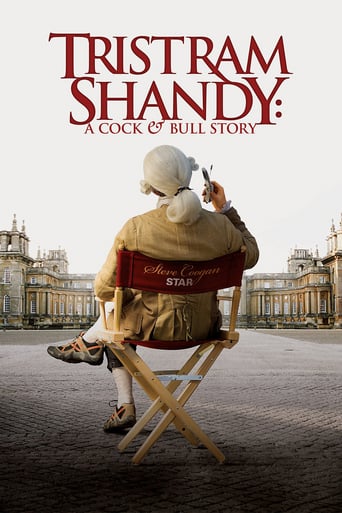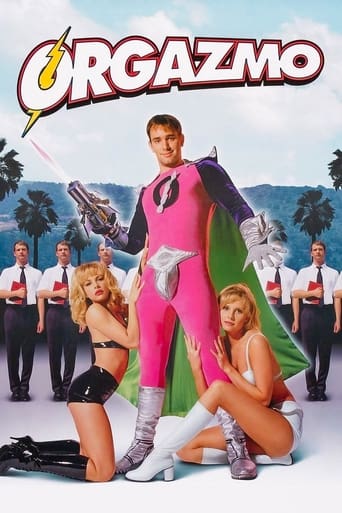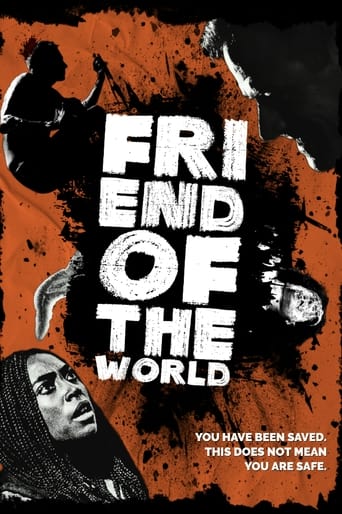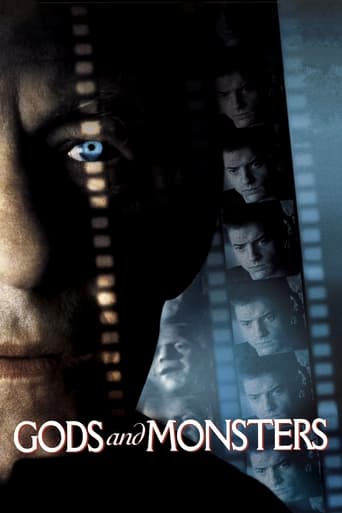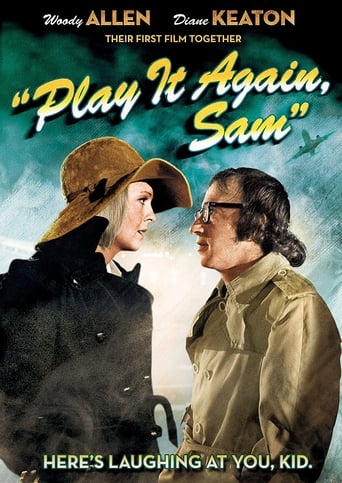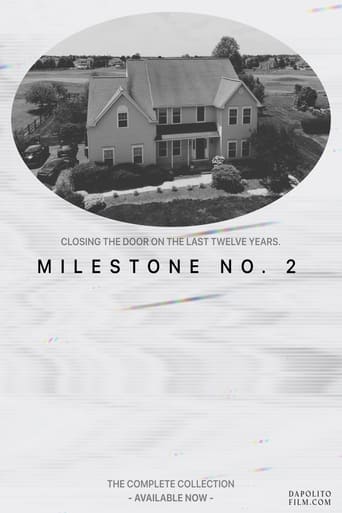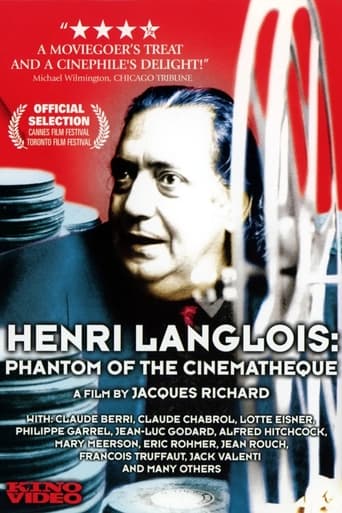

Henri Langlois: The Phantom of the Cinémathèque (2005)
Life and work of the founder of the Cinémathèque Française.
Watch Trailer
Cast
Similar titles
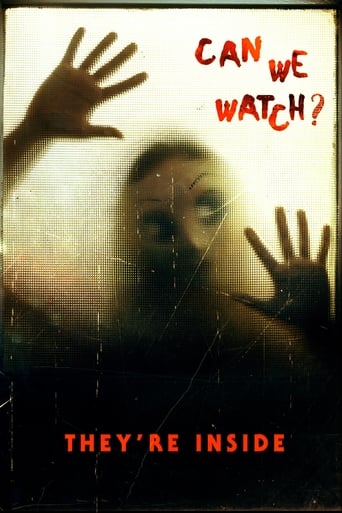
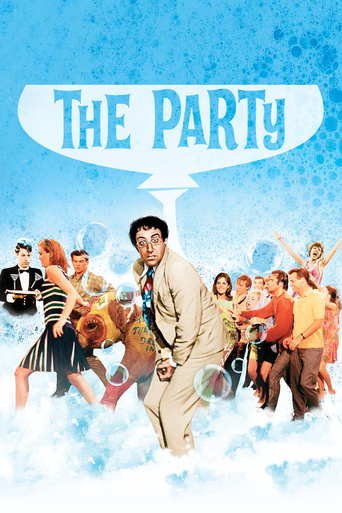
Reviews
Very disappointing...
This movie is the proof that the world is becoming a sick and dumb place
hyped garbage
good back-story, and good acting
Until I watched this documentary on TCM, I did not know or heard of Henri Langlois and was amazed to learn what he did for cinema. He went through great trouble and hardship to be able to collect and preserve these movies and memorabilia. Watching his interviews and footage you can appreciate his love for cinema and the best part of him was that he collected movies from all over the world unlike some others who only preserved what they liked. Great directors owe their success to this man as he made it possible for the younger generation to have a chance to watch great works of cinema in his theater. One can appreciate his efforts knowing when he started to show these movies, VHS and DVD's were not available and if you missed a movie once it was on big screen, you may never get a chance to watch it. Watching this documentary, I realize that my collection of DVD's would have not been as large if it wasn't for Mr. Langlois. Henri Langlois was a visionary and ahead of his time by decades. Too bad not too many people know about him.
Sadly, over the years most of our older films have been lost-- intentionally destroyed or simply disintegrated since they were made using highly unstable nitrate stock. I've heard estimates that between 50-80% of the films pre-1950 have been lost--mostly because no one had the will to save them. In this climate of ambivalence, Henri Langlois is unique in that as far back as the 1930s, he was, on his own, working feverishly to save what he could of these precious pieces of our history. This documentary both chronicles his efforts as well as points out the impact he had on the film industry--as well as the total ambivalence or outright hostility he encountered from his own government.What was most fascinating about Langois is how for him saving cinema history was not just a passion but an obsession. He didn't particularly care about his clothes or hair or even saving money--every ounce of his energy was spent on film preservation as well as spreading his love of cinema. Throughout a 40 year period, he and the fledgling organization he built operated on a shoestring budget--spending every penny on buying and conserving every film he could possibly obtain. How he managed to beg, borrow, steal (in some cases) and cajole people into parting with these films is fascinating and proved that for Langois it was his all-consuming passion.As a result of his efforts, he was able to introduce classic cinema to audiences in the 1950s and 60s and this had a huge impact on inspiring the French New Wave film movement. Interviews with Truffaut, Godard, Romer and others all point to Langlois as sort of a "Pied Piper" who led them to want to create their own films. Later, this impact spread abroad--eventually leading to Langlois receiving a special Oscar for his contributions to film.Now had this only been the thrust of the documentary, it would have been well worth watching. HOWEVER, the story has a much darker side. Despite all of Langlois' efforts, once he gained some prestige and public attention, he seemed to have constant battles with the French government and small-minded people who wanted to wrest control of Langlois' "Cinématheque Française"--a repository and eventual museum dedicated to film preservation and worship. A few of these people actually were interviewed for the documentary, though unfortunately there were only a few clips of these tiny-brained idiots--I really would have liked to hear more about how they could justify taking an organization like Cinématheque Française and destroying or severely limiting it. While it was obvious to practically everyone that almost all the conserved films would have been lost without Langlois AND it was also obvious Langlois was spending every dime acquiring as many films as possible, people (mostly in the government) were critical and even tried to remove him from the very foundation he created! I think the motivation of many of these individuals was "if I can't have a piece of this, then I'd rather destroy it".Fortunately, the New Wave artists and the world rose up as a result of an attempt to replace Langlois with a political hack (nicknamed "the Langlois Affair"). And, following this huge showdown, Langlois was able to finally build a large and worthy film museum. He was so dedicated to this, that according to this documentary, he would fall asleep in the half-built site--only to awaken a couple hours later and continue his manic efforts.So, once the museum opened in the 1970s, this was the end of Langlois' struggle? Well, unfortunately no. Only a decade later (after Langlois' death), critics began complaining that the museum was stale and needed to be either updated or completely redone in a NEW building--even though the museum was only a decade old. And, when there was a minor fire at the museum in the 1990s, the powers that be decided to put most of the museum in moth balls for over a decade--allowing only a tiny fraction of the holdings to be seen at any time! Langlois must have been rolling in his grave like a rotisserie, though the story is not completely sad. Though the original museum is no more, there is a new museum (finally) and more importantly Langlois' enthusiasm for preservation spread like wildfire--leading to dozens of other film repositories across the globe. For example, in the 1940s and 50s, there were NONE in the United States but today there are about a dozen archives--saving everything from the early silents to documentaries to classic Hollywood to international films.This documentary is an absolute must-see for anyone who considers themselves a "Cinephile"--a lover of film. I am not talking about people who go to the theater weekly, but people who adore film--the history, the preservation and almost the worship of film. If you fall in that category, then it's imperative you see this movie--especially since the creators of this documentary used decades of film to piece together this project. Clips of Langlois from the 40s and 50s all the way up to his death as well as recent clips were all used to create a fascinating montage that is sure to inspire.Thank God for men like Langlois.
I'm actually too emotional to be writing this at this moment, having just seen the film. It is clear that without the extraordinary efforts of Henri Langlois, many of the great achievements in cinema would never have survived. Though he was a genius, he always had to deal with the Sisyphean struggle against pettiness and institutional lameness, but especially a lack of, ironically, VISION, to understand the importance of preserving films as a legacy for the future. It is a must-see for anyone who is passionate about film, but it is heartbreaking to experience the struggle. One cannot fathom how it is possible that although he had remarkable support from some of the most important film makers of SEVERAL generations, in the end, the struggle was too much to bear. It is a lesson/warning: When someone of such immense passion and drive subordinates everything for something greater than himself, we, in society, must pay attention. It's not as though he was a great painter who never sold a painting in his lifetime and died never knowing how he may have affected people through his work. Langlois did have champions, but that just wasn't enough because his task was so enormous. This film deserves a better comment. It is at once exhilarating and crushing.
I had the chance to check out this fantastic documentary some time back at one of our local art cinemas (unfortunately the U.S. cut). After films about films (Day For Night, anyone?), I love documentaries about films. Make no mistake about it, this is a cinematic love letter to one of French cinema's patron saints. The film features scads of interviews with those who knew & loved (or hated) Langlois. As I watched it, I tried to imagine what it must have been liked to have attended a film at the Cinematic Francais,back in the day (with the likes of Truffaut,Goddard & Rivette sitting just inches away from you). This is a film that any/all serious film fanatics should be going out of their way to see. Perhaps one of these days, we may even get to see the 210 minute French cut of the film one of these days.


